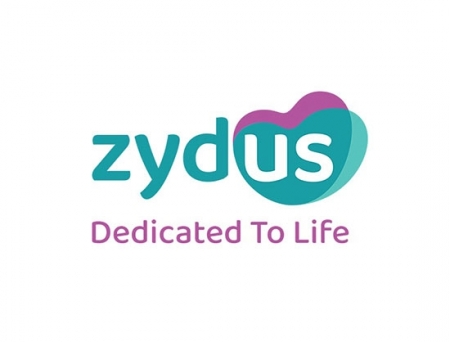预约演示
更新于:2026-02-07
4'-Fluorouridine
更新于:2026-02-07
概要
基本信息
原研机构 |
非在研机构- |
权益机构- |
最高研发阶段临床前 |
首次获批日期- |
最高研发阶段(中国)- |
特殊审评- |
结构/序列
分子式C9H11FN2O6 |
InChIKeyRDCYLPRXPILMRP-JVZYCSMKSA-N |
CAS号1613589-24-4 |
关联
100 项与 4'-Fluorouridine 相关的临床结果
登录后查看更多信息
100 项与 4'-Fluorouridine 相关的转化医学
登录后查看更多信息
100 项与 4'-Fluorouridine 相关的专利(医药)
登录后查看更多信息
21
项与 4'-Fluorouridine 相关的文献(医药)2025-12-23·JOURNAL OF VIROLOGY
Pathogenesis of Hazara orthonairovirus infection in type I interferon receptor-deficient mice and resolution of disease following 4′-fluorouridine therapy
Article
作者: Murray, Justin S. ; Westover, Jonna B. ; Kolykhalov, Alexander A. ; Painter, George R. ; Gowen, Brian B. ; Scharton, Dionna ; Van Wettere, Arnaud J. ; Mao, Shuli ; Natchus, Michael G.
ABSTRACT:
The Crimean-Congo hemorrhagic fever orthonairovirus (CCHFV) is a widespread tick-borne agent that causes severe disease in humans. Its expanding geographic range poses a significant public health threat. Although animal models for CCHFV infection have been developed, the requirement for maximum biosafety level 4 facilities limits the development of countermeasures against the virus. Hazara virus (HAZV) is a closely related orthonairovirus that can be handled in biosafety level 2 containment and has been proposed as a prototype virus for the
Orthonairovirus
genus to facilitate early-stage countermeasure development against the highly pathogenic CCHFV. Here, we present a detailed characterization of HAZV infection in mice deficient in type I interferon signaling (
Ifnar
−/−
), providing insights into the natural history of orthonairovirus disease and highlighting similarities and differences between the HAZV and previously described CCHFV mouse infection models. We then utilized the HAZV mouse infection model to test the efficacy of a promising broad-spectrum antiviral, 4′-fluorouridine (4′-FlU). Our findings demonstrate that delayed intervention with orally administered 4′-FlU can rescue clinically ill mice following challenge with a lethal dose of HAZV, supporting further investigations of the compound’s efficacy in CCHF disease models.
IMPORTANCE:
The Crimean-Congo hemorrhagic fever orthonairovirus poses a significant public health threat, underscored by the expansion of
Hyalomma
genus tick vectors and the lack of clinically proven therapeutic options. The related Hazara orthonairovirus (HAZV), which has not been reported to cause human disease, has been proposed as a prototype virus for the
Nairoviridae
family. Here, we characterize in detail the mouse model of lethal HAZV disease to gain further insight into nairovirus pathogenesis and use the model for the preclinical development of a promising broad-spectrum antiviral drug candidate, 4′-fluorouridine (4′-FlU). Our findings highlight the value of HAZV as a surrogate for proof-of-concept studies supporting early-stage antiviral drug studies and the therapeutic potential of 4′-FlU for the treatment of often-fatal Crimean-Congo hemorrhagic fever.
2025-10-23·JOURNAL OF VIROLOGY
An orally available 4
'
-fluorouridine prodrug inhibits SFTSV and LCMV infection
Article
作者: Xiao, Gengfu ; Xu, Huan ; Shen, Jingshan ; Zhang, Leike ; Cao, Junyuan ; Zhang, Yumin ; Tian, Guanghui ; Xiang, Li ; Jian, Xiaoqin ; Hu, Tianwen ; Wen, Yuxi ; Xu, Mengwei ; Jiang, Xiaming
ABSTRACT:
Bunyaviruses, a subset of segmented negative-sense RNA viruses, include pathogenic species capable of zoonotic transmission to humans via arthropod vectors and rodent hosts. Pathogenic bunyavirus infections can cause severe hemorrhagic fevers and other life-threatening diseases, posing threats to human health and social stability; however, therapeutic strategies for treating bunyavirus infections remain limited. Here, we report that VV251 hydrochloride salt (VV251), an optimized oral prodrug derivative of 4′-fluorouridine (EIDD-2794), exhibits potent efficacy against severe fever with thrombocytopenia syndrome virus (SFTSV) and lymphocytic choriomeningitis virus (LCMV) both
in vitro
and
in vivo
. In various cell lines, VV251 inhibits SFTSV and LCMV with EC
50
values in the nanomolar to micromolar range. In lethal rodent models, once-daily oral administration of VV251 at low doses (10 mg/kg for SFTSV; 1 mg/kg for LCMV) achieves complete protection (100% survival), matching the efficacy of T-705 at 300 mg/kg. Additional pharmacokinetic analysis indicates that VV251 has favorable absorption and exposure profiles in both Sprague-Dawley rat and cynomolgus monkey models. This study evaluates the antiviral profile of VV251 and supports its further development as a promising therapeutic candidate.
IMPORTANCE:
Bunyaviruses encompass numerous highly pathogenic agents that pose significant threats to human health, including the causative agents of Crimean-Congo hemorrhagic fever, Lassa fever, and Rift Valley fever. The World Health Organization has identified Lassa fever as a priority pathogen requiring urgent research and development efforts in emergency contexts, underscoring the critical need for effective oral antiviral therapies to enhance pandemic preparedness. Here, we report that VV251 hydrochloride salt (VV251), an optimized oral prodrug derivative of 4′-fluorouridine (4′-FlU, EIDD-2794), shows significant efficacy against severe fever with thrombocytopenia syndrome virus and lymphocytic choriomeningitis virus infections, with inhibitory activity in cell culture and protective effects in lethal animal models. Building on the established broad-spectrum antiviral activity of 4′-FlU against multiple high-consequence pathogens (including severe acute respiratory syndrome coronavirus 2, respiratory syncytial virus, Lassa virus, and Junin virus), VV251 emerges as a promising next-generation oral antiviral candidate, offering an orally available therapeutic option to combat these formidable pathogens.
2025-10-08·mBio
Effective treatment of advanced Oropouche virus, Rift Valley fever virus, and Dabie bandavirus infections with 4'-fluorouridine
Article
作者: Kolykhalov, Alexander A. ; Natchus, Michael G. ; Westover, Jonna B. ; Painter, George R. ; Landinez-Aponte, Julio ; Rojas, Inioska ; Bailey, Kevin W. ; Blumeling, Gregory R. ; Jung, Kie Hoon ; Mao, Shuli ; Gowen, Brian B.
ABSTRACT:
Oropouche virus (OROV), Rift Valley fever virus (RVFV), and Dabie bandavirus (DBV) are significant re-emerging and emerging human pathogens with major public health implications. Notably, the ongoing OROV disease epidemic spanning South America, Central America, and the Caribbean now exceeds 11,000 cases, including several fatalities and reports of neurological disease and congenital abnormalities associated with infection. Rift Valley fever outbreaks continue to plague sub-Saharan Africa, and DBV, the etiologic agent of severe fever with thrombocytopenia syndrome (SFTS), is expanding its reach throughout several Asian countries. No vaccines or approved therapies are available to prevent or treat these viral infections. Here, we report on the antiviral activity and protective efficacy of the ribonucleoside analog, 4′-fluorouridine (4′-FlU), against OROV, RVFV, and DBV in cell culture and murine models of infection and disease. In cell culture, the potency of 4′-FlU was in the low nanomolar (OROV) to low micromolar (RVFV and DBV) range. In vivo, prophylactic oral dosing of the compound was fully protective against all three viruses in their respective mouse infection models. Importantly, post-exposure and therapeutic interventions of advanced infections in mice also responded remarkably well to treatments. Our findings extend the broad-spectrum antiviral capacity of 4′-FlU and support the compound’s further development for treating severe bunyaviral infections.
IMPORTANCE:
Re-emerging and emerging viral diseases, for which no approved vaccines or therapeutics exist, pose a significant public health threat in affected areas of the world. Antiviral drugs that are broadly active against multiple pathogenic viruses are much needed. Our findings demonstrating robust protection conferred by treatment with 4′-fluorouridine (4′-FlU) in viral infection models for Oropouche fever, Rift Valley fever, and severe fever with thrombocytopenia syndrome support the continuing development of this promising broad-spectrum antiviral drug candidate for the treatment of these notable viral diseases.
8
项与 4'-Fluorouridine 相关的新闻(医药)2025-02-28
Zydus, a discovery-based, global pharmaceutical company, is ready to launch the season’s first India’s Flu protection as per WHO recommended composition of quadrivalent influenza virus vaccines for use in the 2025 southern hemisphere.
The company’s Quadrivalent Inactivated Influenza vaccine VaxiFlu-4 will offer protection against A/Victoria/4897/2022 (H1N1)pdm09-like virus, A/Croatia/10136RV/2023 (H3N2)-like virus, B/Austria/1359417/2021 (B/Victoria lineage)-like virus, B/Phuket/3073/2013 (B/Yamagata lineage)-like virus.
A quadrivalent vaccine, by covering strains of both influenza A and influenza B, provides a broader protection and significantly reduces the risk of vaccine mismatch. The vaccine has been cleared by the Central Drug Laboratory (CDL).
VaxiFlu-4 is being marketed by Zydus Vaxxicare – a division of the group focussing on preventives. The Quadrivalent Inactivated Influenza vaccine has been developed at the Vaccine Technology Centre (VTC) in Ahmedabad which has proven capabilities in researching, developing, and manufacturing of safe and efficacious vaccines.
Speaking on the development Dr. Sharvil Patel, Managing Director, Zydus Lifesciences Ltd. said, “Preventives are the key to public health in both the developing and the developed world and vaccines have the potential to improve the quality of life. In India, there is a pressing need for access to affordable, high-quality vaccines that can address healthcare challenges. With vaccines like VaxiFlu-4, we are serving the cause of public health through annual immunisation and preventing flu outbreaks.”
Because of annual and occasional outbreaks, the control of influenza has become a major public health challenge. Annual Influenza (flu) vaccination is the best way to prevent flu and its potentially serious complications. Influenza is a contagious respiratory illness caused by influenza viruses which spreads from person to person, mainly through airborne respiratory droplets generated from coughing and sneezing or direct contact with an infected surface or individual.
It can cause illnesses that range in severity and at times lead to hospitalisation and death-with the latter occurring mainly in high-risk groups, such as under-five children, the elderly, and people with immunosuppressive and chronic medical conditions. According to the World Health Organization (WHO), seasonal influenza results in 290,000- 650,000 deaths every year.

疫苗上市批准
2025-02-27
Zydus has announced to launch the season’s first India’s Flu protection as per WHO recommended composition of quadrivalent influenza virus vaccines for use in the 2025 southern hemisphere.
The company’s Quadrivalent Inactivated Influenza vaccine VaxiFlu-4 will offer protection against A/Victoria/4897/2022 (H1N1) pdm09-like virus, A/Croatia/10136RV/2023 (H3N2)-like virus, B/Austria/1359417/2021 (B/Victoria lineage)-like virus, B/Phuket/3073/2013 (B/Yamagata lineage)-like virus.
A quadrivalent vaccine, by covering strains of both influenza A and influenza B, provides a broader protection and significantly reduces the risk of vaccine mismatch. The vaccine has been cleared by the Central Drug Laboratory (CDL).
VaxiFlu-4 is being marketed by Zydus Vaxxicare-a division of the group focussing on preventives. The Quadrivalent Inactivated Influenza vaccine has been developed at the Vaccine Technology Centre (VTC) in Ahmedabad which has proven capabilities in researching, developing, and manufacturing of safe and efficacious vaccines.
Speaking on the development Dr. Sharvil Patel, Managing Director, Zydus Lifesciences Limited said, “Preventives are the key to public health in both the developing and the developed world and vaccines have the potential to improve the quality of life. In India, there is a pressing need for access to affordable, high-quality vaccines that can address healthcare challenges. With vaccines like VaxiFlu-4 we are serving the cause of public health through annual immunisation and preventing flu outbreaks.”
Because of annual and occasional outbreaks, the control of influenza has become a major public health challenge. Annual Influenza (flu) vaccination is the best way to prevent flu and its potentially serious complications. Influenza is a contagious respiratory illness caused by influenza viruses which spreads from person to person, mainly through airborne respiratory droplets generated from coughing and sneezing or direct contact with an infected surface or individual.
It can cause illnesses that range in severity and at times lead to hospitalization and death-with the latter occurring mainly in high-risk groups, such as under-five children, the elderly, and people with immunosuppressive and chronic medical conditions. According to the World Health Organization (WHO), seasonal influenza results in 290,000-650,000 deaths every year.

疫苗上市批准
2024-02-06
Influenza A viruses with induced resistance to a new candidate antiviral drug were found to be impaired in cell culture and weakened in animals, according to a new study.
Influenza A viruses with induced resistance to a new candidate antiviral drug were found to be impaired in cell culture and weakened in animals, according to a study by researchers in the Center for Translational Antiviral Research at Georgia State University.
In a study published in PLoS Pathogens, the authors explored the developmental potential of 4'-fluorouridine (4'-FlU), a clinical drug candidate, for influenza therapy. They resistance profiled the compound against influenza viruses and mapped possible routes of viral escape, addressing specifically whether resistance affects viral pathogenicity and ability to transmit.
In previous studies, 4'-FlU demonstrated broad oral efficacy against seasonal, pandemic and highly pathogenic avian influenza viruses in cell culture, human airway epithelium cells and two animal models, ferrets and mice.
Seasonal influenza viruses pose a major public health threat, infecting nearly 1 billion people worldwide each year and causing millions to require hospitalization and advanced care. Annual flu vaccines provide moderate protection, but the benefit is marginal when vaccines are poorly matched with circulating virus strains or when novel, pandemic virus strains emerge.
While three different classes of antivirals are approved by the U.S. Food and Drug Administration for use against influenza, they each have a low genetic barrier against viral resistance. One of these classes is no longer recommended by the Centers for Disease Control and Prevention due to widespread presence of resistance mutations in circulating human and animal influenza A virus strains. Resistance has also been frequently observed to the other two classes of antivirals in human viruses.
"Developing novel therapeutics to mitigate seasonal influenza and improve preparedness against future influenza pandemics is an urgent priority because of pre-existing or rapidly emerging resistance of influenza viruses to approved antivirals," said Carolin Lieber, first author of the study and a postdoctoral fellow in the Center for Translational Antiviral Research in the Institute for Biomedical Sciences at Georgia State.
"In this study, we tested the potential of 4'-FlU as an influenza drug and found that resistant influenza A virus variants are severely weakened in mice. In ferrets, these resistant variants are impaired in their ability to invade the lower respiratory tract and cause viral pneumonia, in addition to being transmission-defective or compromised," Lieber said.
In cell culture, six different escape lineages with distinct mutations were found. The mutations adhered to three distinct structural clusters that are all predicted to affect the active site of the viral RNA-dependent RNA polymerase complex, leading to moderately reduced viral sensitivity to the drug, according to the study's findings.
The study also found that oral 4'-FlU administered at the lowest efficacious dose (2 mg/kg) or elevated dose (10 mg/kg) overcame moderate resistance when mice were infected with a lethal amount of influenza virions. This was demonstrated by significantly reduced virus load and complete survival, the authors reported.
"We discovered that we could fully mitigate lethal infection with the resistant variants and viral spread with standard or five-fold elevated oral dose of 4'-FlU," said Richard Plemper, senior author of the study, Regents' Professor in the Institute for Biomedical Sciences and director of the Center for Translational Antiviral Research at Georgia State. "These results demonstrate that partial CA09 escape from 4'-FlU is feasible in principle, but escape mutation clusters are unlikely to reach clinical significance or persist in circulation."
Additional authors of the study include Hae-Ji Kang, Megha Aggarwal, Jeong-Joong Yoon and Robert M. Cox of the Center for Translational Antiviral Research in the Institute for Biomedical Sciences at Georgia State; Nicole A. Lieberman, Elizabeth B. Sobolik and Alexander L. Greninger of the University of Washington Medical Center; and Michael G. Natchus of the Emory Institute for Drug Development and Emory University School of Medicine.
The study is funded by the National Institutes of Health's National Institute of Allergy and Infectious Diseases.
疫苗临床结果临床研究
100 项与 4'-Fluorouridine 相关的药物交易
登录后查看更多信息
研发状态
10 条进展最快的记录, 后查看更多信息
登录
| 适应症 | 最高研发状态 | 国家/地区 | 公司 | 日期 |
|---|---|---|---|---|
| 拉沙热 | 临床前 | 美国 | 2026-01-07 | |
| 沙粒病毒科感染 | 临床前 | 美国 | 2022-10-27 | |
| 新型冠状病毒感染 | 临床前 | 美国 | 2022-01-14 | |
| 新型冠状病毒感染 | 临床前 | 美国 | 2022-01-14 | |
| 呼吸道合胞体病毒感染 | 临床前 | 美国 | 2022-01-14 | |
| 呼吸道合胞体病毒感染 | 临床前 | 美国 | 2022-01-14 | |
| 基孔肯雅热 | 临床前 | 美国 | - |
登录后查看更多信息
临床结果
临床结果
适应症
分期
评价
查看全部结果
| 研究 | 分期 | 人群特征 | 评价人数 | 分组 | 结果 | 评价 | 发布日期 |
|---|
No Data | |||||||
登录后查看更多信息
转化医学
使用我们的转化医学数据加速您的研究。
登录
或

药物交易
使用我们的药物交易数据加速您的研究。
登录
或

核心专利
使用我们的核心专利数据促进您的研究。
登录
或

临床分析
紧跟全球注册中心的最新临床试验。
登录
或

批准
利用最新的监管批准信息加速您的研究。
登录
或

特殊审评
只需点击几下即可了解关键药物信息。
登录
或

生物医药百科问答
全新生物医药AI Agent 覆盖科研全链路,让突破性发现快人一步
立即开始免费试用!
智慧芽新药情报库是智慧芽专为生命科学人士构建的基于AI的创新药情报平台,助您全方位提升您的研发与决策效率。
立即开始数据试用!
智慧芽新药库数据也通过智慧芽数据服务平台,以API或者数据包形式对外开放,助您更加充分利用智慧芽新药情报信息。
生物序列数据库
生物药研发创新
免费使用
化学结构数据库
小分子化药研发创新
免费使用



